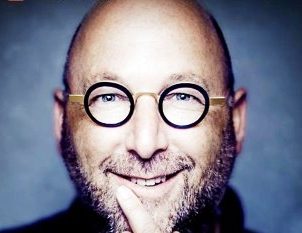Voices
Just how long do we have?
We’re clearly back in the negative part of the South African cycle. Wherever I go, I engage with people who are concerned, anxious, and worried.

HOWARD FELDMAN
And whereas most of the worries are real and relevant, a little perspective might not be a bad thing.
From when we were kids, my grandparents and then my parents instilled in us the notion that, “Your education is the only thing that they can’t take away from you.” I was never clear who “they” was, but the threat seemed real.
With exodus from Germany still fresh in their minds, understandably they continued to sleep with one eye open, and a sceptical eye on the future.
The standard question in the 1970s and 1980s was, “How long does South Africa have?”
The range was five years at the very least, and 10 if we were lucky. So much so that for me, there was no time for a “gap” year when I finished school because we needed to get that education as quickly as possible before it all came tumbling down.
And here we are 40 years later.
This past Shabbat was particularly noteworthy. Because we complained a lot. It might have had something to do with the sudden cold snap and gloomy weather, or discussion of the NHI (National Health Insurance). However, I caught myself, surrounded by family and friends, at a magnificent meal in a magnificent home, being waited on (it was an occasion), complaining about how tough things are in this “wretched place”.
Later that evening, I went to listen to a 93-year-old survivor of Stalin’s Russia, and again wondered if we have lost it completely.
Yes, it can be difficult, and we can’t live our lives comparing ourselves to a man who as a youngster found his parents dead in a Russian gulag. Then, with no tools available, he had to dig a shallow grave with his bare hands just to bury them. Considering this, a bit of perspective might not be a bad thing.
NHI would be an unmitigated disaster. The government has proven that it is unable to run a cake sale without stealing the ingredients, and has pretty much destroyed every enterprise it has touched.
But the “good news”, at least in this sense, is that it hasn’t implemented anything in the 25 years it has been in power.
It’s still talking about land reform, and it still hasn’t sorted out Eskom. Schools are still a mess, and South African Airways continues to dump money like fuel before an emergency landing.
To be brutal, with the post office in the state it’s in, the government can’t even get a letter successfully delivered.
Why then should the implementation of a billion-rand enterprise of the complexity of the NHI, which demands that each citizen, doctor, and associated medical services be registered, logged, and reimbursed, ever come to fruition? Cynically, it would solve the unemployment crisis, as we are likely to see more deaths than Ebola would cause, and more immigration than migration season in the Serengeti.
But it’s not going to happen. Never. Ever. Not as it’s being proposed.
It doesn’t mean that some version of national health won’t be implemented. It also doesn’t mean that it mustn’t be opposed as vigorously as possible. But it’s unlikely to have an impact on anyone who prefers private health.
Denial is rarely a good thing. We need to acknowledge the ruthless plunder of the past few years in South Africa. We need to stand up to corruption and folly.
But we shouldn’t lose perspective. We need to curtail the negative speak, and guard against becoming trapped in a space of our own creation.
Penny Swisa
August 15, 2019 at 11:58 am
‘Well written and well said. I’m not an ostrich with my head in the sand, but I am still happy living in SA. Is the alternative so wonderful? The prophets of doom are generally disgruntled people who will use whatever it takes to create an atmosphere of negativity. I hope they turn out to be false prophets.
For now perhaps they should go to a doctor and get a prescription for ‘happy pills’, before NHI takes hold in the way that they predict.’
Jennifer unterslak
August 15, 2019 at 7:34 pm
‘Totally agree but I have to admit I have never felt so scared for our future here.’